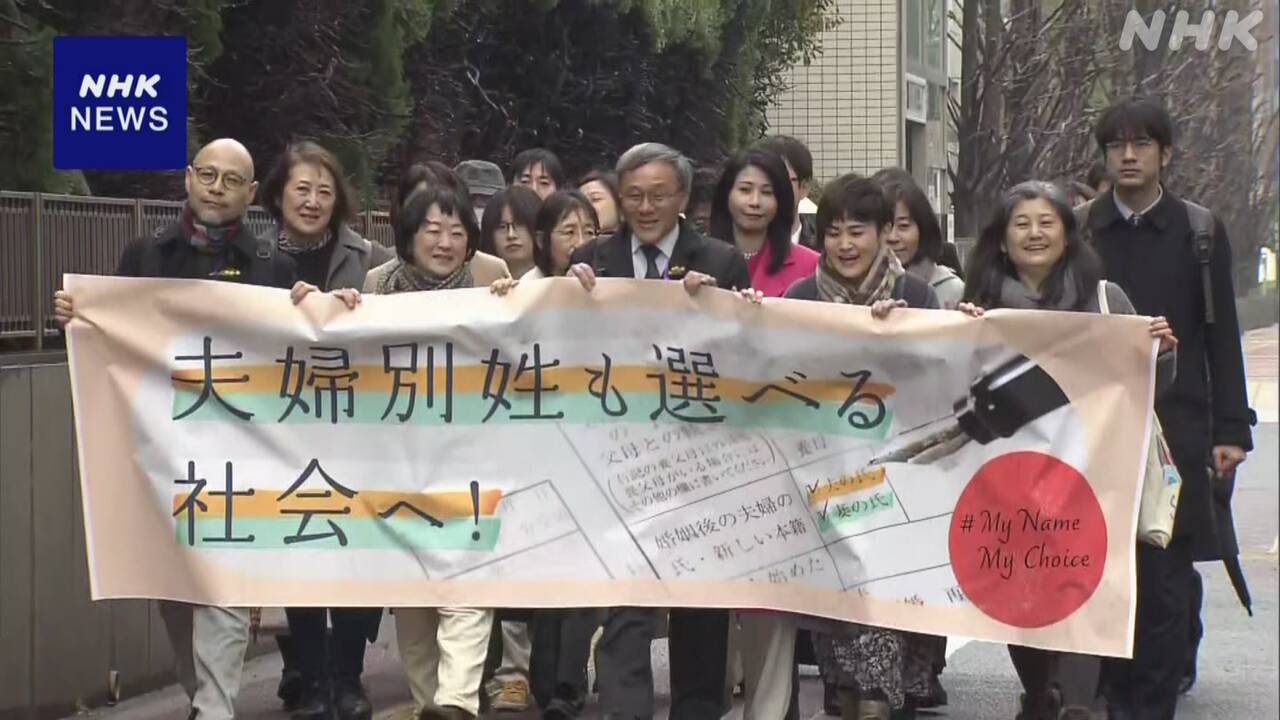Twelve people living in Tokyo and other areas have filed a lawsuit demanding compensation from the government, arguing that the provision of the Civil Code that does not allow married couples to have separate surnames violates the Constitution.
The same provision has been twice ruled constitutional by the Supreme Court's Grand Bench, but the plaintiffs say they want to change the unreasonable system in which marriage is not possible unless one spouse gives up their surname.
A total of 12 people filed the lawsuit, including five common-law couples and one married couple living in Tokyo, Nagano, Hokkaido, and other areas.
On the 8th, the 12 people filed a complaint with district courts in Tokyo and Sapporo, claiming that the provisions of the Civil Code and Family Register Act that do not allow married couples to have separate surnames "violate the Constitution, which guarantees the freedom of marriage, and are invalid." has been submitted.
The 12 people and their attorneys argue that when people get married and change their surnames, it becomes difficult to maintain the trust and reputation that was tied to their maiden names, and many people feel a loss of identity.
Additionally, couples who have given up on getting married and have chosen a common-law marriage are said to be constantly worried because they are different from married couples in various ways, such as being at a disadvantage when it comes to inheritance.
The same provision was examined twice in 2015 and 2021 by a Grand Bench attended by all 15 Supreme Court justices, and both times the majority opinion ruled that it did not violate the Constitution. There were also five judges in 2015 and four judges in 2021 who found it ``unconstitutional.''
One of the plaintiffs in Tokyo, Mitsuru Nezu (pseudonym), who has been in a common-law marriage with his partner for 17 years, said, ``I have a daughter who is a junior high school student, but she cannot receive various legal benefits. "I don't want to leave my daughter with an unreasonable system that requires her to give up her surname before she can get married."
The head of the defense team, lawyer Makiko Terahara, said, ``Despite the Supreme Court's decision that it should be discussed in the Diet, there was no action in the Diet, so we filed the lawsuit because it is a human rights issue, not a political issue.This time, we need a judicial decision. I want human rights violations to end."

